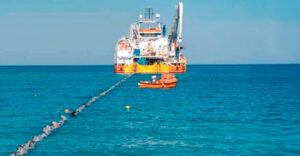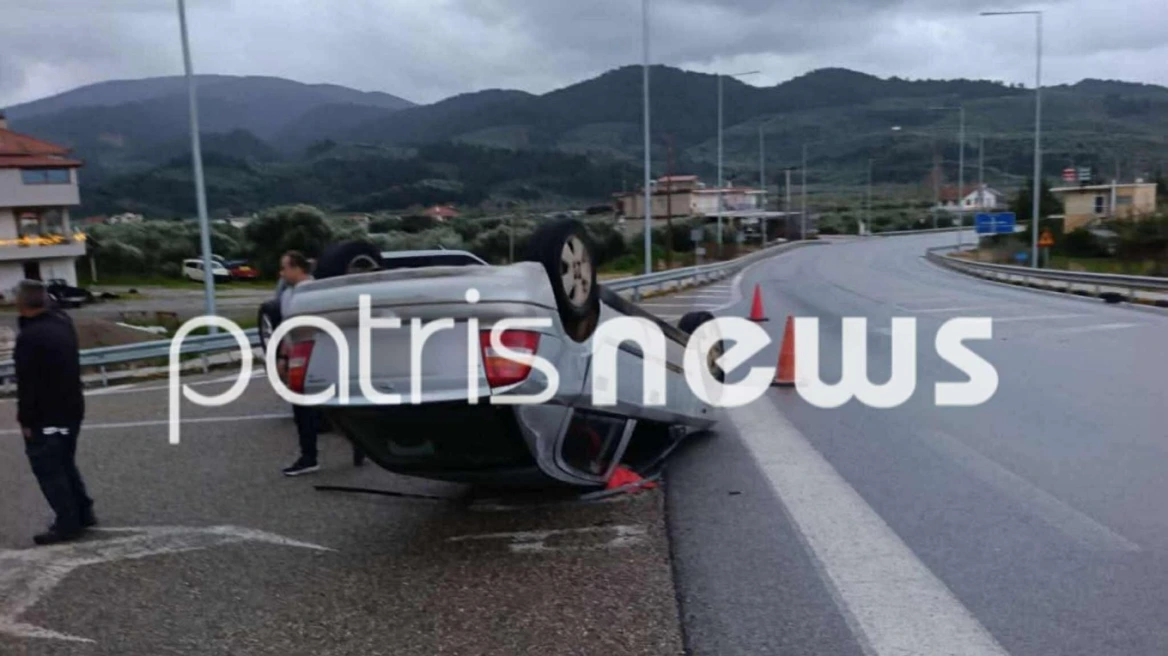Ahead of Athens’ decision to issue NAVTEX to continue investigations into the laying of a cable for the Crete-Cyprus electricity interconnection, the leaks on both sides in the last 24 hours have been a dress rehearsal.
Athens, which reiterates its determination to go ahead with the project, as apart from its economic importance it directly concerns the exercise of the country’s sovereign rights, sent the message through leaks that a NAVTEX is imminent for the resumption of exploration in areas of the Greek EEZ east of Kassos, which were blocked by Turkey last July.
In response to the Greek leaks, Turkish newspaper Turkiye has picked up the baton with leaks from Turkey’s diplomatic and military sources, which lift a new “ban” on the surveys, stating that “no fait accompli will be allowed.”
According to the report, diplomatic sources in Turkey said Greece’s “unilateral steps are provocative” as the boundaries of the continental shelf and Exclusive Economic Zone (EEZ) in the Aegean Sea and the Eastern Mediterranean have not yet been defined by mutual agreement, and such activities violate the United Nations Convention on the Law of the Sea and the principles of good neighbourliness.
Sources at Turkey’s foreign and defense ministries stressed, according to Turkiye, that “the country is determined to protect its rights in the Aegean and Eastern Mediterranean and there will be no backtracking on the EEZ boundaries.” Responding essentially to Greek reports that a plan has also been drawn up at the Defense Ministry for the Navy to support the surveys, if necessary, the Turkish sources point out, according to Turkiye, that “continuing to lay cables under military protection could increase regional tensions and undermine the ground for dialogue.”
For Athens, the continuation of exploration in areas outside its territorial waters, and indeed in an area where there is a legally delimited Greek EEZ east of Kasos, is now a one-way street. Otherwise, not only is there a risk that an important energy project in which significant funds have already been invested will be wrecked, but above all, the impression will be given that the exercise of basic sovereign rights, and rights arising from the Law of the Sea on freedom of the seas, has been suspended due to Turkey’s threats.
For several weeks now, sources at the foreign ministry have insisted that the electricity interconnection project will go ahead as normal whether or not there is an understanding with Turkey.
Since then, there have been at least two meetings between the two countries’ foreign ministers, Giorgos Gerapetritis and Hakhan Fidan, at which – as Ankara’s reaction (via the Turkiye publication) indicates – there has been no change of stance on Turkey’s part.
Ankara, true to its policy that “no project in the Eastern Mediterranean will take place without its consent or permission“, demands that there be some kind of recognition of its even indirect role in this project.
In July, it had used the disclosure of coordinates from the Italian ship Ievoli Relume to Turkish authorities to issue a Turkish NAVTEX for exploration within the Greek EEZ, even claiming that it involved an area of the Turkish continental shelf.
The issuance of NAVTEX does not concern sovereignty and sovereign rights, as it is a competence. However, Turkey disputes the Greek area of responsibility for issuing NAVTEX and has unilaterally defined the Turkish area of responsibility for NAVTEX to be identical to the “Blue Homeland” and essentially reach up to the 6 nautical mile limit east of the islands (Rhodes, Kasos, Karpathos) and up to the middle of the Aegean.
For Turkey, there is another reason for its opposition, as it is attempting to enforce the Turkish-Libyan Memorandum, under which it has illegally drawn the outer limits of its EEZ up to the 6-nautical-mile limit of the territorial waters of the Greek islands. And at the same time, as was recently the case with the radio interference of the Italian research vessel north of Crete by a Turkish corvette, it seeks to impose on Greece the restriction of even freedom of the seas operations to the limit of Greek territorial waters.
If the leak to the Turkiye is accurate, new and difficult facts are created in view of the resumption of the investigations. As it is extremely difficult to come up with a neutral “technical arrangement”, such as those sought by the two sides in their confidential contacts, Turkey will likely attempt to obstruct the investigations without simply settling for radio interference.
For Athens, the options are not many: Either it will persevere and implement the plan to have the Navy support the research vessel, or it will give in to Turkish pressure and threats by suspending the surveys, as it did last July.
The first option, of course, carries the risk of tension on the field, while the second would be a serious blow to the country and the government at a very difficult juncture for the government.
In any case, the two Italian research vessels that had carried out the surveys in the previous period are the Ievoli Relume off the east coast of Great Britain, and the NG Worker was heading on Sunday night to the port of Milazzo in Sicily.
Ask me anything
Explore related questions





